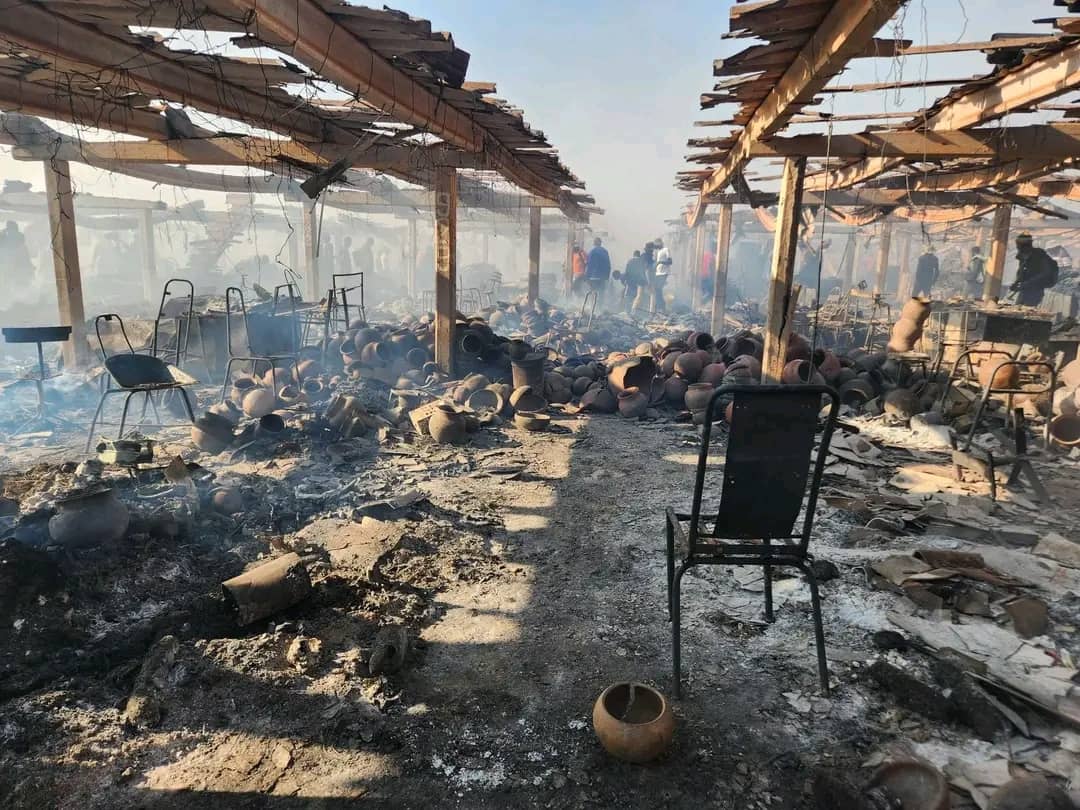Women Affairs, Community, Small and Medium Enterprises Development Minister Monica Mutsvangwa reported that a fire at Mbare Musika on Tuesday night resulted in the destruction of more than 1,565 tables, impacting around 5,000 traders.
The fire devastated numerous stalls and merchandise, completely destroying the retail area and causing damage to parts of the wholesale market. In a statement on Wednesday, Mutsvangwa emphasized that the government is collaborating with development partners to support the affected traders who lost their goods in the fire. She remarked, “This has profoundly affected the lives of approximately 4,695 traders who rely on this market as their main source of income.”
There are conflicting theories about the fire’s cause. Some witnesses alleged that vendors selling brooms may have ignited the blaze while smoking. Others speculated that homeless individuals seeking warmth could have inadvertently set nearby stalls on fire.
Harare City Council spokesperson Stanley Gama confirmed that assessments of the damage are still underway as firefighters work to clear the charred remains of the stalls.
ALSO READ: Housemaids Arrested for Stealing US$26,000 from Employer
In response to the situation, George Charamba, Deputy Chief Secretary in the Office of the President and Cabinet, mentioned that the fire offers an opportunity to reorganize Zimbabwe’s largest informal market. He suggested that Mbare Musika should be restructured to ensure better accommodations for traders.
Charamba proposed integrating point-of-sale (POS) systems connected to the Zimbabwe Revenue Authority (ZIMRA) at each booth, aiming to bring informal traders into the national tax system. He also advocated for improved lighting throughout the market to enhance safety and security, as well as to extend trading hours and attract more customers.
He noted that reorganizing Mbare Musika for better access would significantly benefit its large customer base. Additionally, Charamba proposed considering military assistance in constructing new structures around the market, contingent on the demolition of Matapi flats, to facilitate a new housing initiative.

For comments, Feedback and Opinions do get in touch with our editor on WhatsApp: +44 7949 297606.
